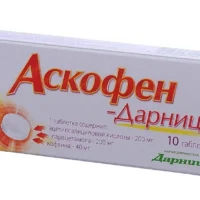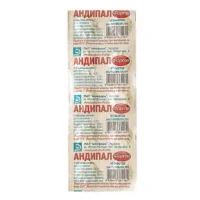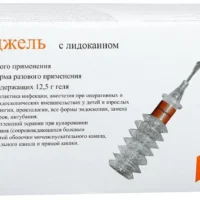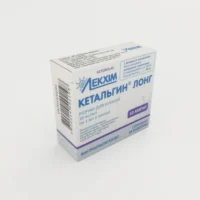Description
Sigan (Nimesulide, Dicycloverine) Coated Tablets №4
Ingredients
Active ingredients: Each coated tablet contains nimesulide and dicycloverine.
Dosage
Dosage: The usual recommended dose is one tablet taken orally twice daily.
Indications
Indications: Sigan tablets are indicated for the relief of symptoms associated with irritable bowel syndrome (IBS) and mild to moderate pain.
Contraindications
Contraindications: Do not use Sigan tablets in patients with a history of hypersensitivity to nimesulide, dicycloverine, or any other component of the formulation.
Directions
Directions: Swallow the tablet whole with a glass of water. Do not crush or chew the tablet.
Scientific Evidence
Nimesulide, a nonsteroidal anti-inflammatory drug (NSAID) present in Sigan tablets, inhibits cyclooxygenase (COX) enzymes, reducing prostaglandin production that mediates inflammation, pain, and fever. Dicycloverine, an antispasmodic agent, acts on gastrointestinal smooth muscle, relieving spasms and cramps associated with IBS.
Clinical trials have shown nimesulide’s efficacy in managing pain and inflammation, while dicycloverine effectively alleviates gastrointestinal spasms. The combination in Sigan tablets offers a synergistic approach to treating IBS symptoms and pain.
Additional Information
- Storage: Store Sigan tablets in a cool, dry place away from direct sunlight.
- Side Effects: Common side effects may include nausea, dizziness, and dry mouth. Seek medical advice if any adverse reactions occur.





